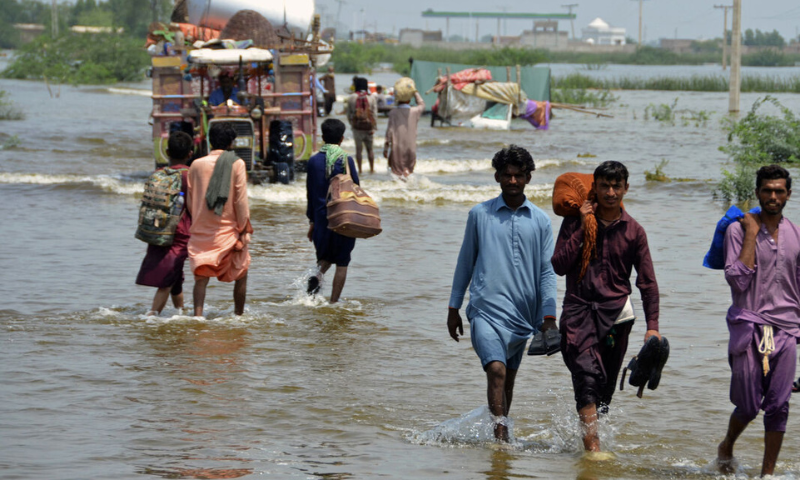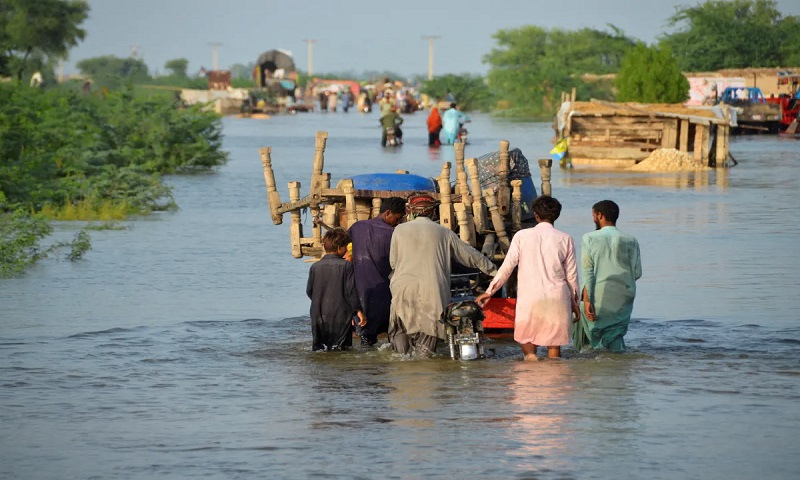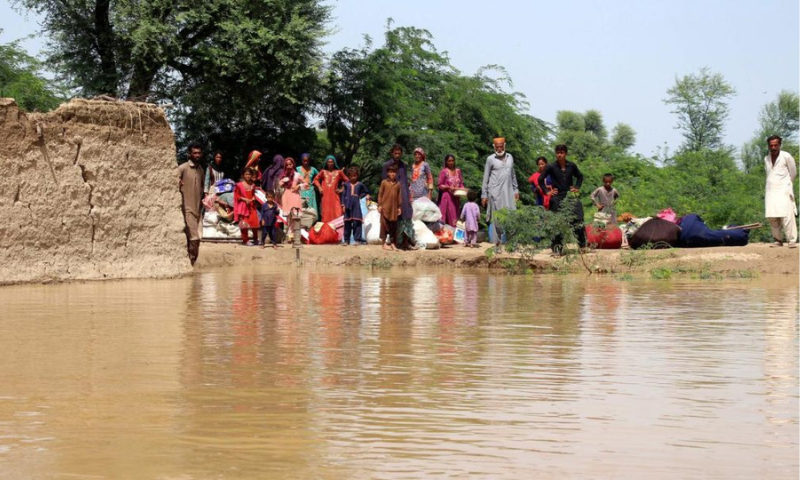Last year’s flood wreaked havoc in various parts of Pakistan, killing thousands of people, displacing around 33 million, and damaging private properties and public infrastructure worth trillions of rupees. Agriculture was the hard-hit sector that was the mainstay of the people as floodwaters swayed away standing crops on large swathes of land and livestock.
Sindh and Balochistan were the most affected provinces by the floodwater, while Khyber-Pakhtunkhwa, South Punjab, Azad Kashmir, and Gilgit-Baltistan also faced destruction due to the natural calamity. The United Nations called it a climate catastrophe. Pakistan is paying the price for the increasing adverse impacts of climate change, while its contribution to carbon emissions is ignorable.

The government of Pakistan launched a mass appeal at the international level to raise funds to help the flood-affected people. The international community came forward with the announcement of a generous amount for relief and rehabilitation of the affected folk. Similarly, the federal and provincial governments also announced packages to provide relief to the flood-hit people.
Prime Minister Shehbaz Sharif approved a grant of Rs 15 billion for Sindh to overcome the heavy losses of life and infrastructure in the wake of the massive destruction caused by the flash floods. Similarly, assistance worth billions of rupees was given to the affected people of Balochistan. But, it is an irony that flood survivors are still waiting for elusive government help for the rehabilitation of their houses even after half a year to the deluge, and draining of stagnant floodwaters from their areas.
People are forced to live in tents in Sindh and Balochistan without having basic civic facilities. They lack education facilities for the children and medical care for their sick ones. More importantly, there is a dire need to rehabilitate them by making their lands cultivatable off stagnant floodwater and providing them free seeds, fertilizers and other agri inputs as announced by the government. People want to go back to their homes and villages but they do not have the resources to get their properties and land drained, which are still under water.

The people at the helm of affairs need to focus on this aspect and come out of slumber, which is evident from the recent criticism of the government even by the coalition partners. Chairman Pakistan People’s Party (PPP) Bilawal Bhutto Zardari, who is also a cabinet member of Prime Minister Shehbaz Sharif-led dispensation, warned the government to fulfill its pledges made with the flood victims, otherwise, it will be difficult for the PPP to remain part of the cabinet.
Similarly, nationalist political parties in Sindh and Balochistan are too demanding of the federal government to divert more financial resources for the rehabilitation of the flood-hit people of these provinces.

The global community and aid agencies should also fulfill their commitments and extend maximum assistance in kind and funds to bring the flood victims of Pakistan from the physical and psychological trauma they are going through. The government of Pakistan should also reignite its efforts to mobilize the world, especially the Muslim Ummah, to provide sufficient support to the flood-affected people for their rehabilitation, restoration of public infrastructure, and provision of different facilities, including education, health as well as shelter.
Timely help from the government, the international community, aid agencies, and the general public will enable the flood-hit people to cultivate their lands and raise livestock to make both ends meet

























